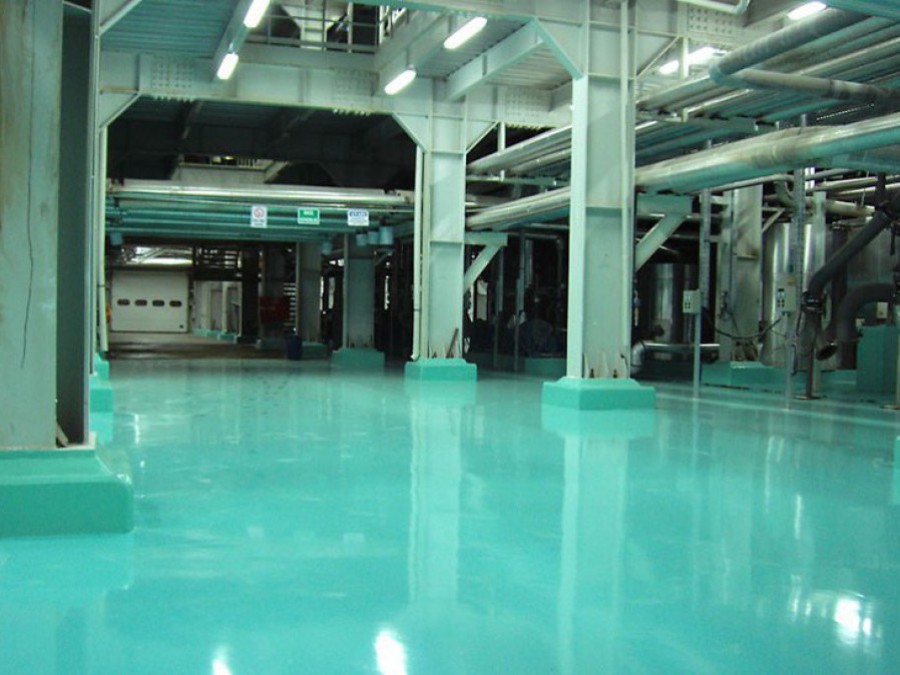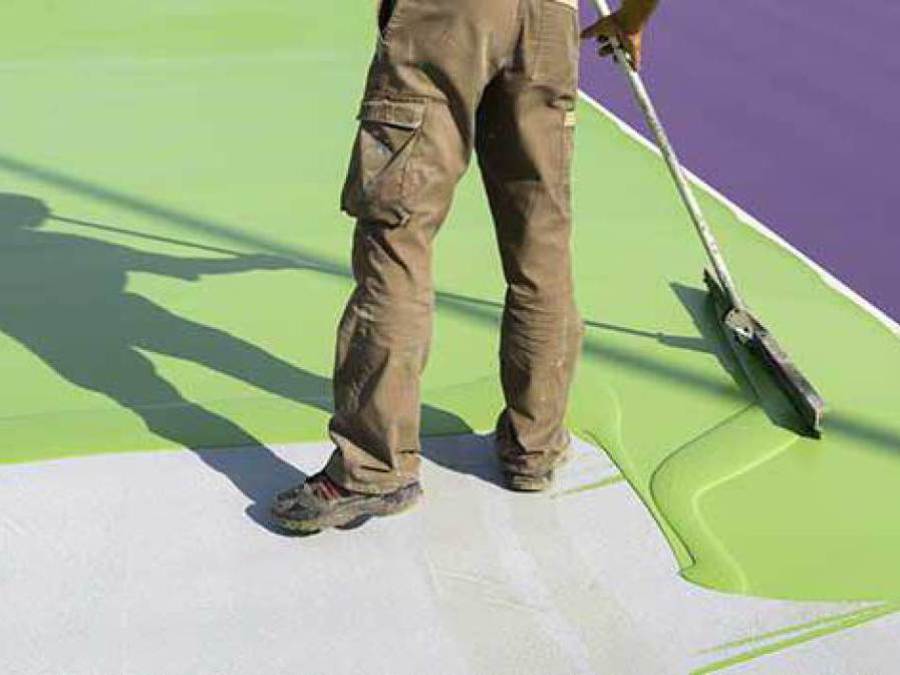EPOXY and POLYURETHANE
Despite their apparent similarity, the self-leveling epoxy resin and polyurethane coatings are different, both in their resistance to wear and their appearance and price.
Both types of resins are applied in thicknesses 1 to 3mm and have a solid structure, easy maintenance, waterproof and very hygienic.
Polyurethane resins are generally recommended because they have a high elasticity and are more resistant on a loose support. Polyurethane resins are also much more resistant to changes in temperature. With aliphatic treatment, polyurethane resins are also more resistant to UV.
Epoxy resin:
Advantages: Beautiful shiny appearance.Suitable for all types of interior pieces.
Disadvantages: EXCLUDED outdoors.
POLYURETHANE resin:
Advantages: Resin more resistant to shocks and scratches than epoxy. Satin appearance.
Disadvantages: Outdoors may be sensitive to UV rays without aliphatic treatment.
Epoxy resin
Self-smoothing 2-component EPOXY resin without solvent.
Floor and wall cladding.
It is applied to the roll in 2 or 3 layers, or to the notched squeegee it penetrates into the surface and consolidates it.
Several aspects are possible, smooth, matt or shiny, slightly structured or anti-slip.
APPLICATION
- Factories and warehouses
- Shopping centers and others
- Offices
- Auditoriums
- Parts of the particular dwelling
CARACTERISTIC
- Solvent resistant
- High resistance to acids and detergents
- High compressive strength
- Strengthen surfaces
- Easy cleaning
APPLICATION
- Industrial floors
- High-traffic commercial premises
- Heavy-duty professional garages
- Parkings
CARACTERISTIC
- Solvent resistant
- High resistance to acids and detergents
- High resistance to shocks and scratches
- Excellent adhesion
- Easy cleaning


